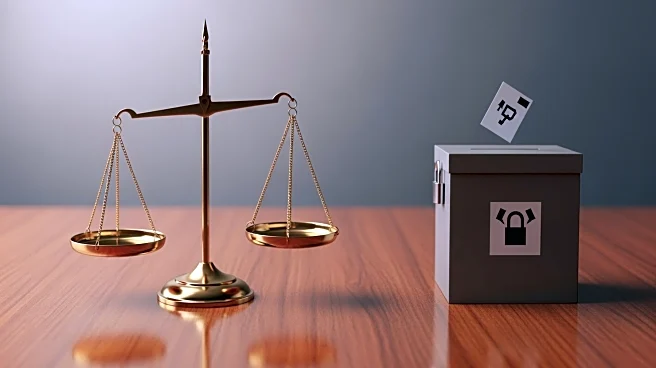What's Happening?
Proposition 50 in California is under scrutiny for potentially disenfranchising Republican voters by redrawing congressional maps to favor Democrats. This measure, initiated by Governor Gavin Newsom, aims
to counteract similar gerrymandering efforts by Texas Republicans. Legal experts suggest that while federal courts may not block the measure due to a 2019 Supreme Court decision, state-level challenges could arise. The proposition has already survived state court challenges, and its passage could reduce Republican representation in California's congressional delegation.
Why It's Important?
The implications of Proposition 50 extend beyond California, as it highlights the ongoing national struggle over partisan gerrymandering. If successful, it could set a precedent for other states, potentially altering the political landscape by reducing Republican influence in Congress. This could affect legislative priorities and the balance of power at the federal level. The measure also raises questions about the integrity of democratic processes and the role of independent redistricting commissions, which are designed to ensure fair representation.
What's Next?
Should Proposition 50 pass, it is likely to face further legal challenges, particularly concerning its compliance with the California Constitution and potential racial discrimination claims. The Supreme Court's upcoming decision on a related case from Louisiana could also impact the legal landscape for redistricting. Meanwhile, Congress may consider legislation to address partisan gerrymandering, though such efforts have previously stalled. The outcome of these legal and legislative battles will be crucial in determining the future of redistricting practices in the U.S.
Beyond the Headlines
The debate over Proposition 50 underscores broader ethical and democratic concerns about gerrymandering. It challenges the notion of fair representation and raises questions about the extent to which political parties should influence electoral boundaries. The measure also highlights the tension between state and federal oversight in electoral matters, as well as the potential for legal reforms to address these issues. As the redistricting battle continues, it may prompt a reevaluation of the principles underpinning American democracy.









